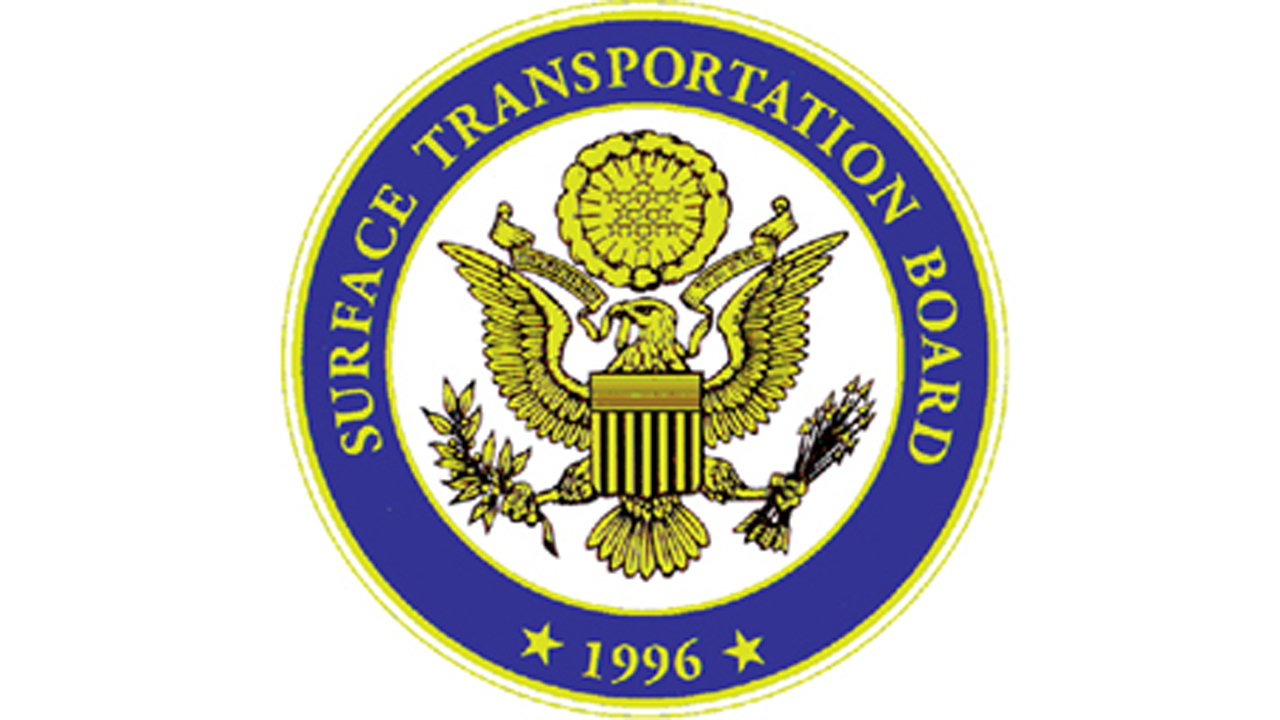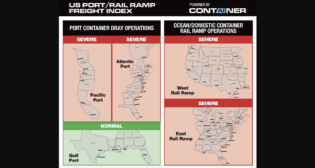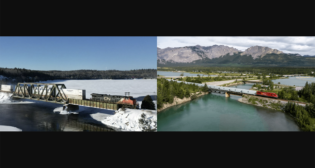
STB Rules in NTEC vs. BNSF Service Case
Written by Marybeth Luczak, Executive Editor
The Surface Transportation Board (STB) on June 23 issued a preliminary injunction requiring BNSF this year to transport 4.2 million tons of coal from Navajo Transitional Energy Company, LLC’s (NTEC) Spring Creek Mine in Big Horn County, Mont., to the Westshore Terminals export facility in British Columbia, Canada. The mine is solely served by BNSF. STB is also requiring the Class I to transport an additional one million tons this year as trainsets and crews become available. Railway Age Capitol Hill Contributing Editor Frank N. Wilner weighs in.
STB explained that its order (download below) effectively requires BNSF to move 23 trains of NTEC’s coal per month beginning immediately, and an additional six trains per month when more trainsets and crew become available. The agency said it also ordered BNSF and NTEC to file weekly status reports during the pendency of the proceeding. Those reports will include the number of trains moved, BNSF’s efforts to secure additional crews, and both parties’ efforts to obtain more trainsets.
NTEC on April 14, 2023, filed an application seeking an emergency service order pursuant to 49 U.S.C. § 11123. In addition, or alternatively, it sought a preliminary injunction under 49 U.S.C. § 1321(b)(4). NTEC asked the STB to direct BNSF “to restore and maintain adequate coal transportation service” from its Spring Creek Mine to the Westshore Terminals facility. In a separate docket, NTEC filed a related complaint and petition for declaratory order alleging that BNSF breached its common carrier obligation, failed to provide adequate car service, and engaged in unreasonable practices with respect to the transportation at issue. On May 10, the STB held an oral argument in the proceeding, which followed an April 27 pre-argument conference with the parties.
In announcing its decision, the STB said it found, by a vote of three-to-two, that “NTEC prevailed on the four-part test for granting injunctive relief.” Specifically, the STB reported finding “that NTEC was highly likely to succeed on the merits of its claim that BNSF violated its statutory common carrier obligation to transport the volume of coal tendered by NTEC. On this prong, the Board found that NTEC’s request for service was reasonable, in light of BNSF’s historical performance, and factual statements in BNSF’S pleadings and at oral argument that BNSF has the capacity to provide the minimum service requested by NTEC.” STB said it also found that “NTEC was likely to suffer irreparable harm, such as significant damage to its reputation as a dependable supplier in the global coal marketplace, which cannot be remedied by money damages. The Board found that balancing the needs of other BNSF customers did not weigh against an injunction because the record establishes that BNSF can comply with the injunction and still meet the needs of other shippers. Finally, the Board found that an injunction serves the public interest because NTEC has shown that it plays a critical role in the Navajo Nation’s economy. The Board further acknowledged that there is a public interest in accessing the rail network.”

“The common carrier obligation is a core tenet of the Board’s regulation of the freight railroad industry and is a pillar of the railroads’ responsibility to our country’s economy,” STB Chairman Martin J. Oberman said. “Today’s decision reflects the majority’s finding that the common carrier obligation requires a railroad to provide service on a customer’s request that is within the railroad’s capacity to provide.”
Oberman added, as the STB said it has previously held: “The common carrier duty reflects the well-established principle that railroads ‘are held to a higher standard of responsibility than most private enterprises.’”
Board members Patrick Fuchs and Michelle Schultz dissented with separate expressions.

“The Board Democratic majority of Chairman Martin J. Oberman, Robert E. Primus and Karen J. Hedlund appear to be putting pedal to the metal to articulate the railroads’ not well-defined-by-statute common carrier obligation—a goal Oberman has long promised,” commented Frank N. Wilner, a former STB Chief of Staff and author of the book, Railroads & Economic Regulation, scheduled for August publication by Simmons-Boardman Books, a Railway Age sister company. “The Board Republican minority of Patrick J. Fuchs and Michelle A. Schultz, in lengthy dissents, consider this case a hastily constructed and weak scaffolding on which to more fully define the common carrier obligation.
“The minority views four flaws in the majority’s split-vote opinion, which well might encourage BNSF to challenge it in federal court:
- “The majority appears to rely on draft contract language and unfinalized contract negotiations to issue the preliminary injunction.
- “If there is, indeed, reputational harm to plaintiffs, as alleged, it likely can be quantified in a separate action pending in a Montana state court, meaning the majority’s determination of irreparable injury required to justify a preliminary injunction is suspect—and certainly so if monetary damages can be established and paid by BNSF.
- “Although BNSF may itself have created the crew-availability service problem, it is not established that BNSF could not, absent this preliminary injunction, transport by year’s end—still more than six months away—and on a reasonably distributed schedule, the cited 4.2 million tons of coal.
- “The majority may be over-reaching the Board’s statutory authority by attempting to define a contract obligation, which, under provisions of the 1980 Staggers Rail Act, are exempt from economic regulation and matters for the courts.”



